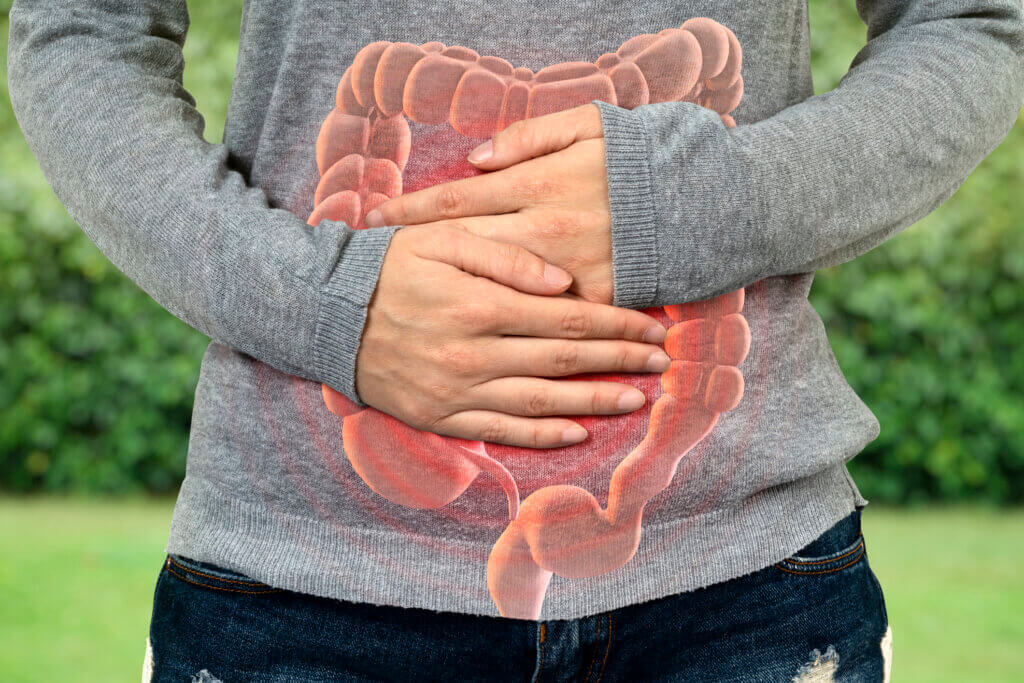Gut Check: 5 Steps to a Healthier Digestive System

Did you know that our bodies have a whole ecosystem of microbes that live in our digestive tract and are a crucial part of our overall well-being? Keeping these microbes healthy and happy contributes to our digestive health, but also our gut environment which impacts so much more than just digestion. A healthy gut environment also enables the optimal function of our immune system, mental health, cognitive function, and metabolic efficiency – meaning well-regulated hormones and energy levels. These microbes communicate with each other all day long, playing a role in our body’s day-to-day functioning. We can implement diet and lifestyle principles to support a healthy and helpful microbiome. To help this system stay in balance, here are five steps you can take to mind your gut health and microbiome.
Mindful eating practices, focusing on slowing down and chewing foods
In a world that is go, go, go, it is easy to rush through meals without giving much thought to the process of eating. However, slowing down and mindfully eating can make a difference in our gut health. We can practice this by taking the time to sit down for meals, limiting distractions, tasting the flavors in each bite, and paying attention to our body’s hunger and fullness signals. Try this out by setting a timer or making a 15-minute playlist to take a break and enjoy your meal today.
Slowing down and chewing our food thoroughly aids in the digestive process, allowing the stomach and intestines to work more efficiently. Taking the time to chew our food means it is more adequately broken down manually, increasing the surface area so the stomach and intestines can work more efficiently. This mindful approach promotes better nutrient absorption and helps you be in tune with how your meal is fueling your body.
Eat enough fiber
The average American eats 15 grams of fiber per day, while the Dietary Guidelines for Americans for adults range from 22-38 grams of fiber from foods daily, depending on your age range. Fiber provides nourishment for the bacteria in the digestive tract, regulates bowel movements, reduces inflammation, aids in blood sugar regulation, and helps you to feel satisfied after eating. Fiber-rich foods include fruits, vegetables, whole grains, legumes, nuts, and seeds. To get the full range of benefits from fiber and support gut microbiome diversity, aim to get a variety of fiber-rich sources in your diet by including a fiber source in each meal. Some examples of high-fiber foods include black beans, lentils, garbanzo beans, old-fashioned oatmeal, chia seeds, avocado, wild rice, and many other delicious foods. Your dietitian can help you come up with ideas for high-fiber foods that will work best for you.

Stay Hydrated
Staying hydrated is important for overall health, and it is particularly important to support proper digestion. How much water you need is individualized and depends on age, your dietary needs, health, activity, climate, and your environment. Generally, we need about 11.5-15.5 cups of water daily for our body to feel its best.
Water helps move fiber and broken-down foods through the digestive tract for nutrient absorption and waste removal. Lack of proper hydration can lead to constipation, bloating, reflux, poor nutrient absorption, and general feelings of fatigue.
Create habits that promote regular fluid intake throughout the day. Fruit-infused waters and herbal teas can be refreshing alternatives to plain water to support your fluid goals. Again your dietitian can help you discover new ways to boost your fluid intake.
Add stress management to your day
Believe it or not, chronic stress (physical and/ or psychological stress) can have a profound impact on gut health. The vagus nerve connects our brain to the gut, and this connection is impacted by inflammation and stress hormones. Stress can disrupt the balance of the bacteria in the gut by influencing the gut barrier and contributing to inflammation, leading to digestive issues. There is an intricate connection between stress in the mind and its impact on the body.
Incorporating stress management strategies can have quite a positive impact on gut health. Techniques such as deep breathing exercises, physical activity, yoga, meditation, spending time outdoors, or walking can be helpful because of the balancing effect they have on the nervous system. Carving out some time for self-care and finding activities that bring you joy can positively influence your overall well-being, including your gut health.
Meet with a Registered Dietitian
A dietitian can guide you with expert advice and tailored recommendations to optimize your gut health. Your dietitian can help you identify specific dietary strategies that can support you and help to resolve digestive issues. Whether you are experiencing digestive issues, seeking guidance to tune up your gut microbiome, want to learn more about probiotics, or want to balance your diet, a Registered Dietitian can offer valuable insights and tools to support your health journey. Come see one of our qualified ATNG dietitians at our Cary, Raleigh, or Clayton offices to get your personalized support.
Prioritizing your gut health doesn’t have to involve drastic changes. Gradually adding these five practices into your daily life can lead to significant steps toward fostering a healthier gut. Start with small, consistent changes over time to gain long-term benefits. Your gut and microbiome will thank you!
Call Us Today: 919-990-1130





